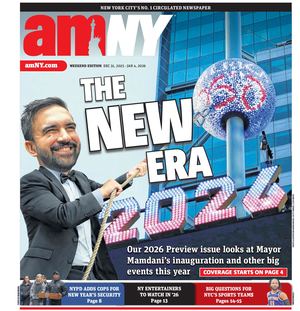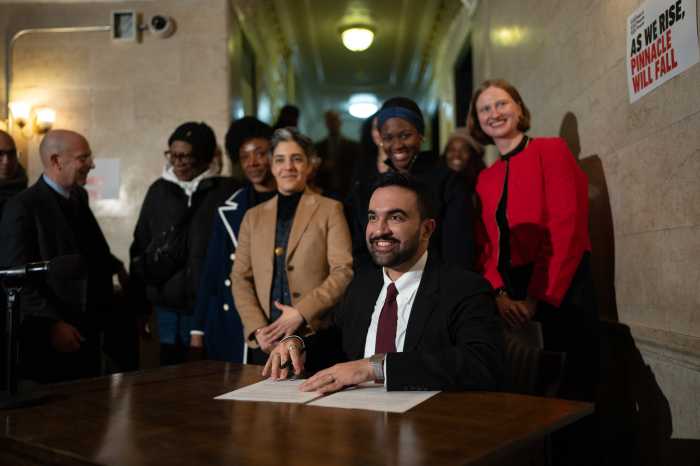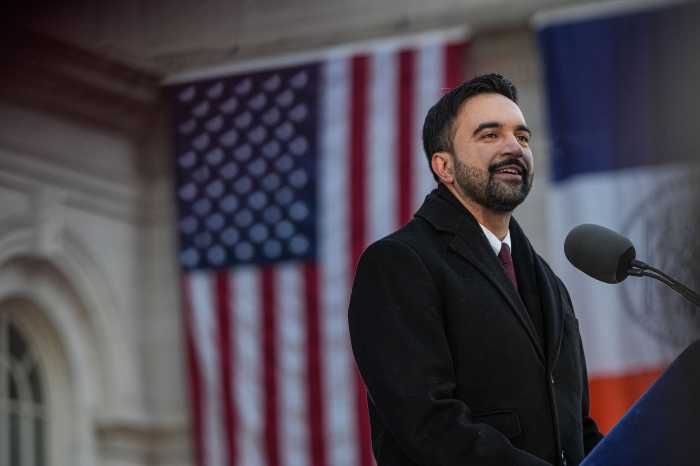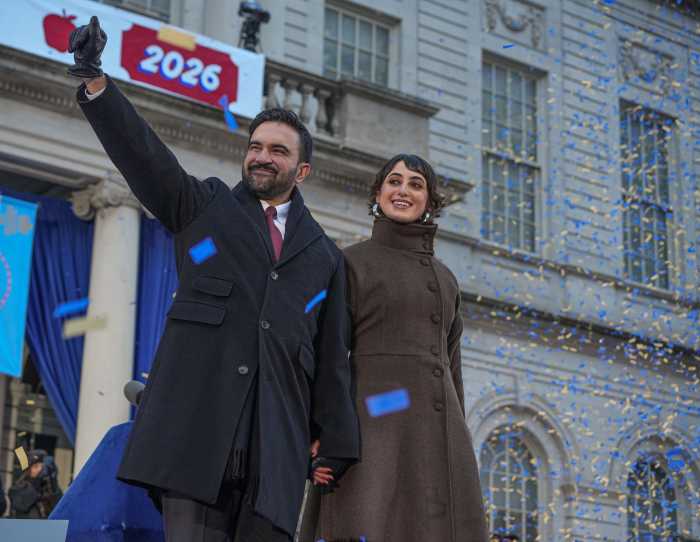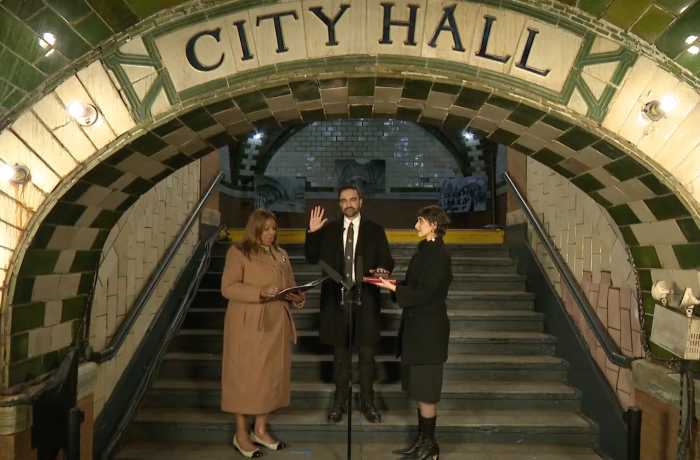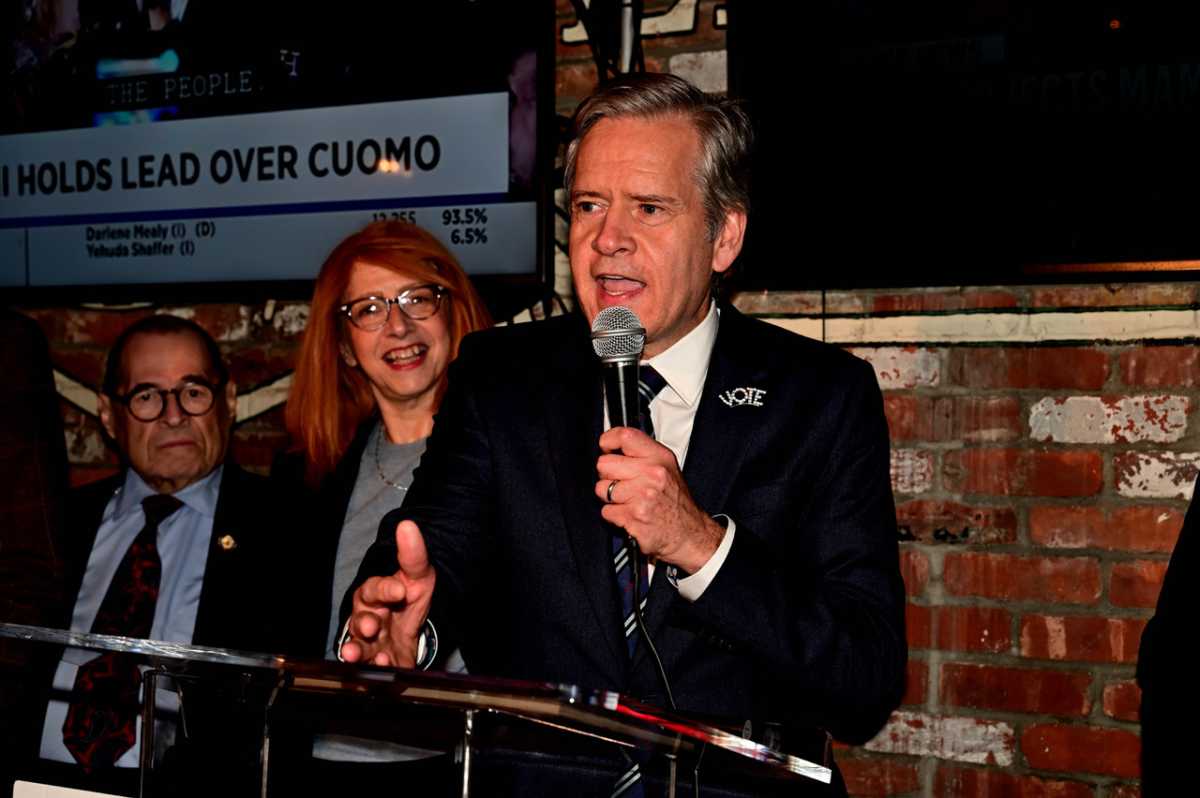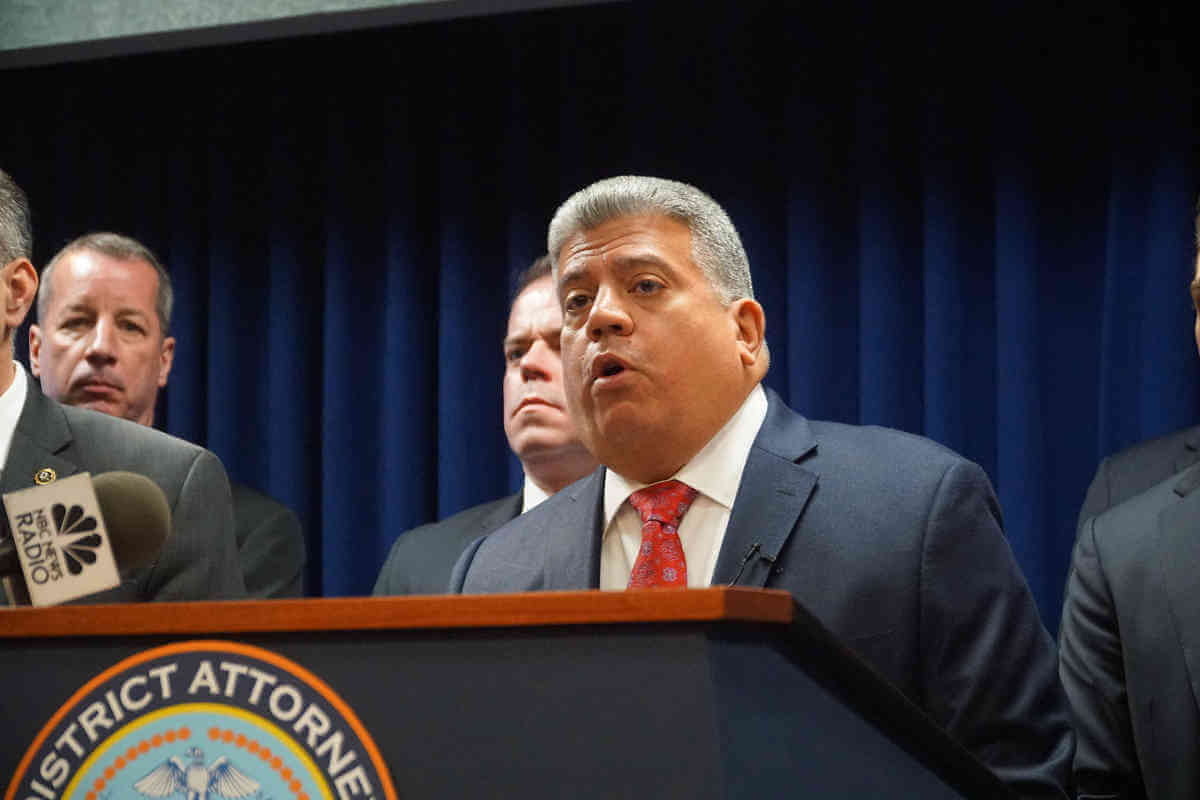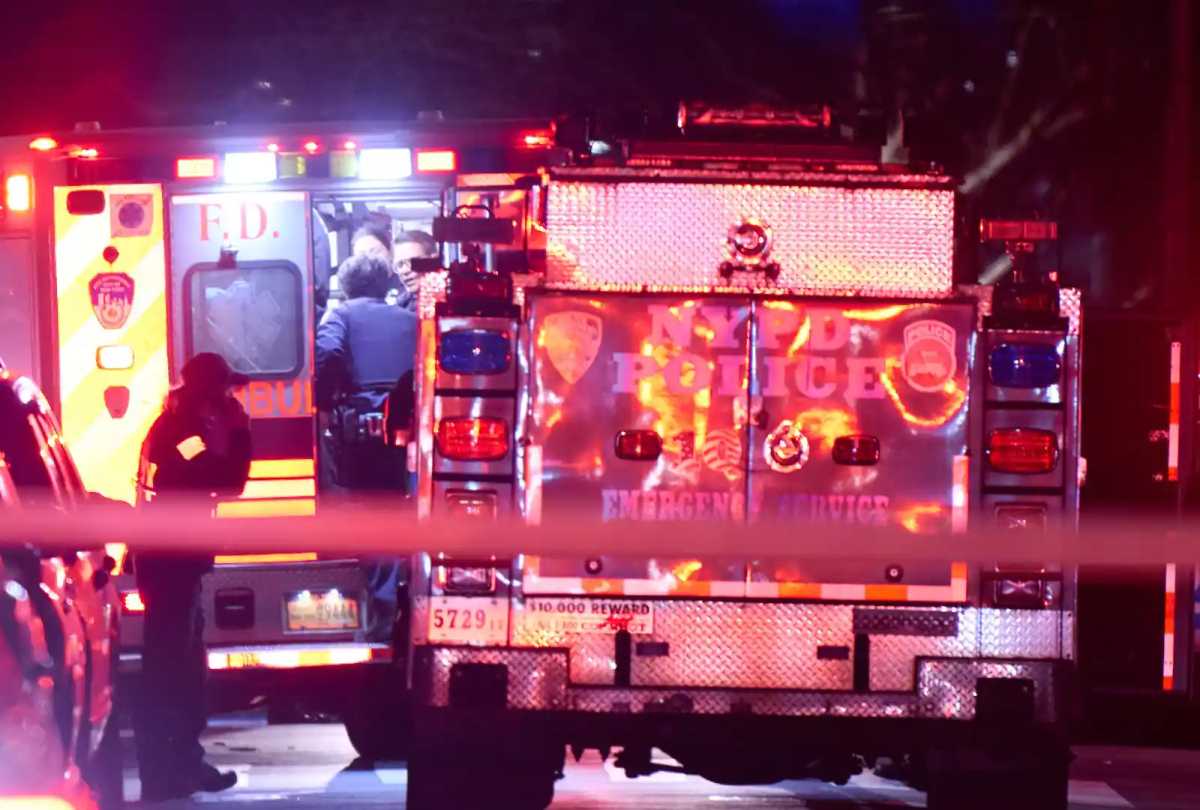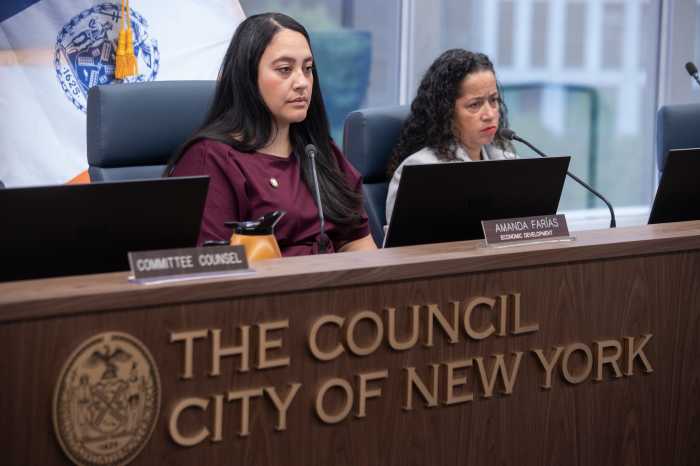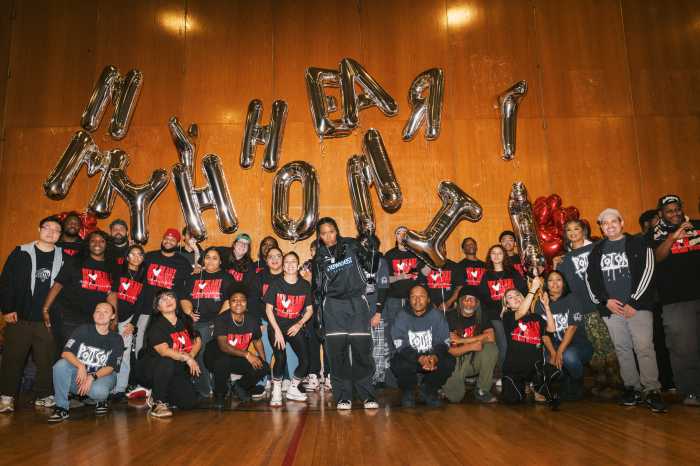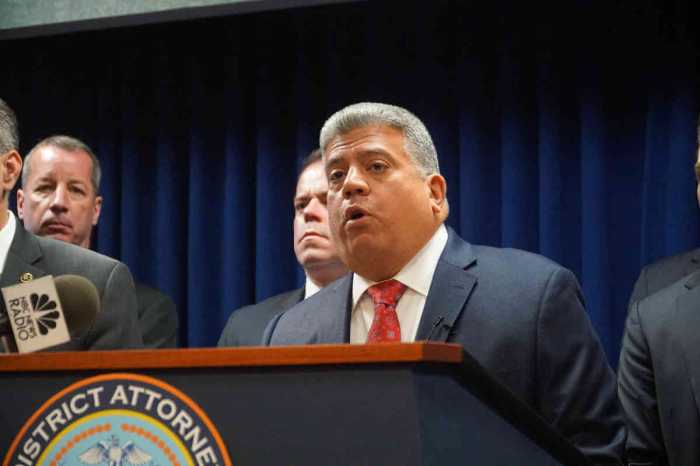The Legal Aid Society on Thursday urged Gov. Kathy Hochul to include public defenders and other members of the defense bar in negotiations over changes to New York’s discovery reform laws before it is finalized, warning that excluding critical voices could lead to flawed and unjust policy.
Legal Aid criticized the governor’s office for relying “almost exclusively” on the input of district attorneys and law enforcement officials while leaving defense attorneys out of the process, despite the sweeping impact the proposed changes could have on their clients.
“Since Gov. Kathy Hochul introduced her budget in January, the criminal defense bar — including local public defenders who collectively represent hundreds of thousands of New Yorkers in court each year — has been denied access and excluded from having a seat at the table,” Legal Aid said Thursday following word from Albany lawmakers that a tentative agreement to modify the state’s 2019 discovery reform law has been reached.
The discovery reform law, known as “Kalief’s Law,” emerged as one of many key issues in the ongoing budget negotiations in Albany, which has led to the state budget being 17 days late. The law currently mandates that prosecutors promptly share evidence in criminal cases. The revised deal aims to ease some of the stringent requirements around evidence disclosure and make it harder for cases to be dismissed due to missing or late evidence.
In response to a query from amNewYork on the level of input public defenders have had in the discussion, a spokesperson for Hochul’s office referred to Staten Island District Attorney Michael McMahon’s comments from Wednesday, in which he claimed public defenders have been “very active in Albany” by meeting with legislators and the Governor’s office, and “they’ve been having those conversations.”
“I’m happy now that under the Governor’s leadership, under Speaker Heastie and Leader Stewart-Cousins, we are part of the conversation because we are the ones charged with keeping the public safe, with keeping the criminal justice system fair and following all constitutional standards — and that’s what we’ve been doing,” said DA McMahon.
McMahon spoke alongside Hochul and other District Attorneys at an April 16 press conference advocating for discovery law reforms, arguing that far too many drivers of crime are escaping consequence, “as thousands of misdemeanors are dismissed across our State over minor and irrelevant paperwork issues.”
However, the Bronx Defenders, a public defense nonprofit who have advocated to protect Kalief’s Law, condemned the negotiation process Wednesday, saying it has “unfolded behind closed doors,” and that full access has only been given to the side of prosecutors.
“This legislative process is playing out exactly like the courtroom dynamics it claims to reform: prosecutors are handed power, while the people whose lives are at stake are shut out. Despite what has been reported, the Governor has not invited a single impacted person or anyone from the defense bar to weigh in on the discovery negotiations. This will lead to rollbacks which will return New York to an era of coerced pleas, prolonged pre-trial detention, and wrongful convictions,” the nonprofit said in a statement.
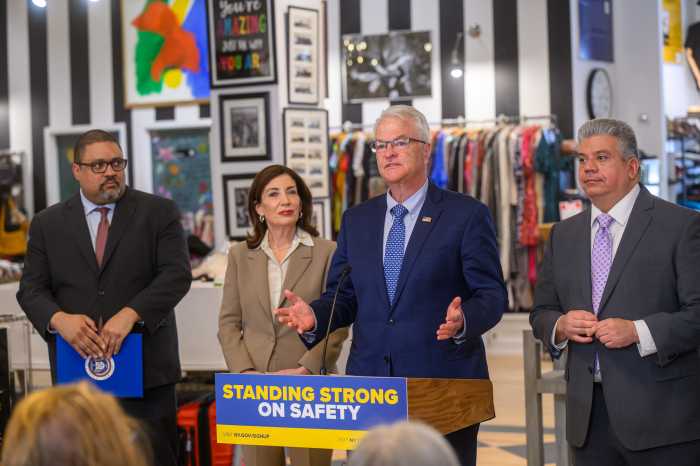
Good faith
Assembly Speaker Carl Heastie confirmed Tuesday that the tentative agreement had been reached regarding compromises on narrowing the circumstances under which criminal cases can be dismissed due to missing or incomplete evidence. Full details of the proposal have not yet been made public.
Speaker Heastie said the 2021 People v. Bay decision served as the foundation for some of the Assembly’s compromises on proposed changes. In that case, the state’s highest court ruled that judges must consider whether prosecutors acted in good faith and exercised due diligence before dismissing a case for failing to turn over evidence on time. Heastie said the Assembly’s proposal also incorporates the concept of “prejudice” – whether missing evidence would significantly impair a defendant’s ability to mount a defense – into the criteria judges must weigh. Public defenders argue that People v. Bay already provides sufficient legal guardrails, making further changes to the law unnecessary.
On the issue of good faith and due diligence, DA McMahon said the amendments to the law that “we are very close to resolving simply define that better so the judges will understand what that standard means.”
“If a prosecutor exhibits good faith and due diligence and still something was missed, the question then should be, did that cause any type of harm or prejudice to a person charged with the crime?” said McMahon. “And if so, then the solution should be one that’s fashioned around or is proportionate to that harm. So if it goes to the person charged with innocence — what we call a Brady violation — then we would agree that the case should be dismissed, but if it is something that is neither relevant nor related to the case, then maybe we should be precluded, but the case should not be dismissed.”
Despite ink almost being singed on the deal, Legal Aid is urging Hochul to open up the negotiation table, pointing to a 2022 collaboration between prosecutors and public defenders that resulted in “thoughtful, targeted reforms” as a model for how stakeholders can work together effectively.
“When key voices are excluded, policy — regardless of the subject — is more likely to be flawed, ineffective, and unjust,” the group said. “Excluding critical perspectives, particularly from those directly impacted, undermines the integrity of the decision-making process and ultimately harms the very people the policy is meant to serve.”
The organization praised the Legislature for remaining open to feedback and called on the governor to do the same. “Our request is simple: convene all criminal legal stakeholders, share your full current proposal, and let’s work together to strengthen our discovery laws,” Legal Aid said.
Additional reporting by Sadie Brown
